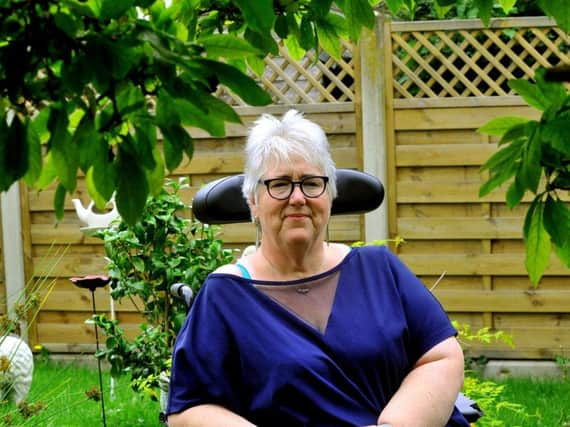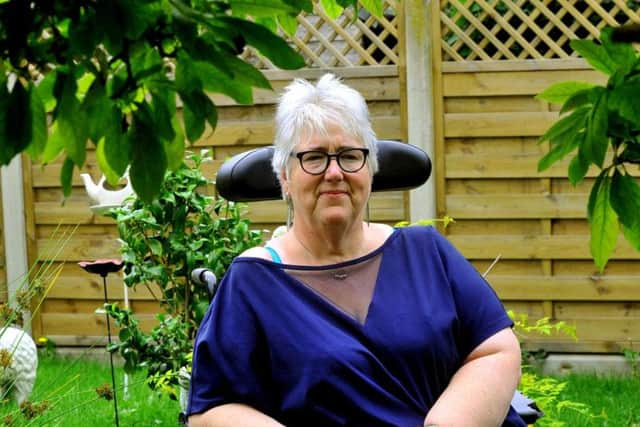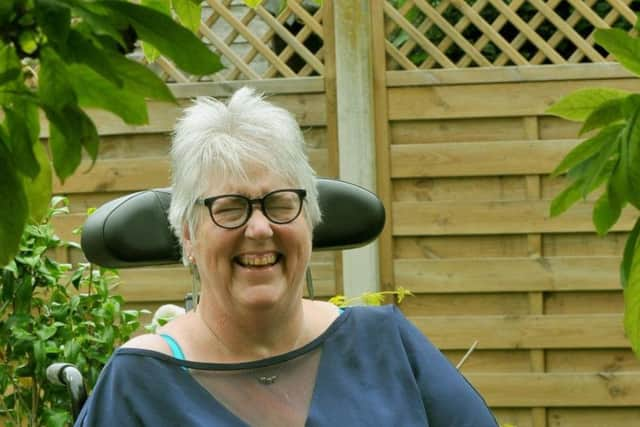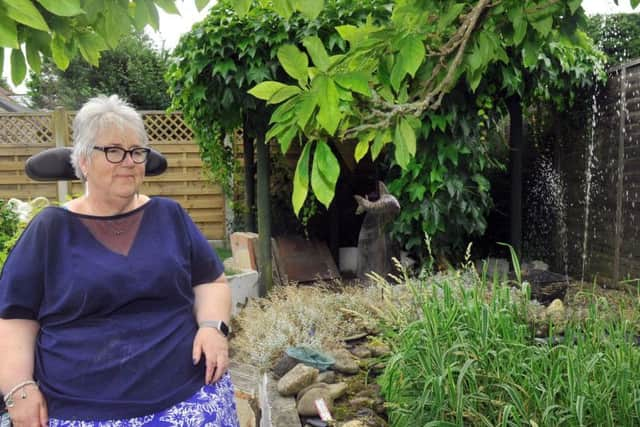Harrogate woman battling rare condition which leaves her blind to faces


She is face blind, after a terrible accident left her in a coma and changed the way her brain works.
What it means is that she is unable to recognise people, even those she knows well.
Advertisement
Hide AdAdvertisement
Hide AdStopping in the street to talk to a neighbour, she has no idea who they are. They could be a close friend, a casual acquaintance, or someone she met five minutes ago.


To the 53-year-old, they are interchangeable.
"At it's simplest, prosopagnosia is face blindness," she says. "When I look at faces I can see features, but when it comes to differentiating from someone else's, I just can't do it.
"I can spend time with someone today, but if five minutes later I see them in the street, I won't know who they are."


Her booming laughter as she describes the anomalies of her condition belie the challenges she faces. The prosopagnosia, she admits, is a daily battle.
Advertisement
Hide AdAdvertisement
Hide AdMs Middleton, a trained psychiatric nurse who went on to manage mental health services in Warwickshire, had been critically injured when she was knocked down 19 years ago.
Crossing Westminster Bridge in London, she was struck by a motorcyclist, then a taxi, suffering devastating injuries which eventually led to her leg being amputated.
Waking from a coma, she found her life irrevocably changed.


"I've got problems with my spine, my pelvis, my ribs, my vertebrae," she says. "All these things were broken. I was in a bad way, and in intensive care for quite a long time.
Advertisement
Hide AdAdvertisement
Hide Ad"But in some ways, the physical changes were a lot easier for people to get used to than the brain injury."
Since the accident, her tastes have altered. Tea and coffee are interchangeable, and her once most loathed meal, of tinned tomato soup, has become somehow palatable.
Even watching a favourite television show has it's hazards, she laughs, as she becomes lost in the plot twists every time a well-known character changes clothes.
Walking into a room can be daunting, and there are everyday challenges, the unexpected moments when a stranger says hello.
Advertisement
Hide AdAdvertisement
Hide AdBut while being face blind could make for a lonely life, Ms Middleton is armed with a litany of tricks.
Society's nuances are what colours her new world, she says, and it's people's distinctions, from their voices to habits and clothes, which she now reads.
"I put a lot more store by people's voices," she says. "I try almost to have a database about people in my head.
"It was quite odd to be learning to do things again, but with quite a different brain."
Advertisement
Hide AdAdvertisement
Hide AdMost of those affected by prosopagnosia are born with it, and it is very rare to develop the condition later in life. Those who do are often like Ms Middleton, impacted by brain injury.
In an ironic twist for Ms Middleton, those people she knew before her accident have stayed present in her mind, so she knows what it means to recognise someone.
"It has at least made sense of some very strange experiences," she says, speaking of her diagnosis.
"People that I should have known, thinking I was ignorant or not being friendly. The truth was, I just wasn't seeing them.
Advertisement
Hide AdAdvertisement
Hide Ad"It is hard," she adds. "There's no treatment, no cure. Apart from, as time goes on, you learn to live with it.
"Certainly there are times when I really struggle, but I don't go there for very long. Everybody has things they struggle with.
"There's a lot more help out there now for people who have been through trauma than when it first happened.
"Maybe in 2020, as opposed to 2000 when it happened to me, people will be more aware that everyone has different experiences."